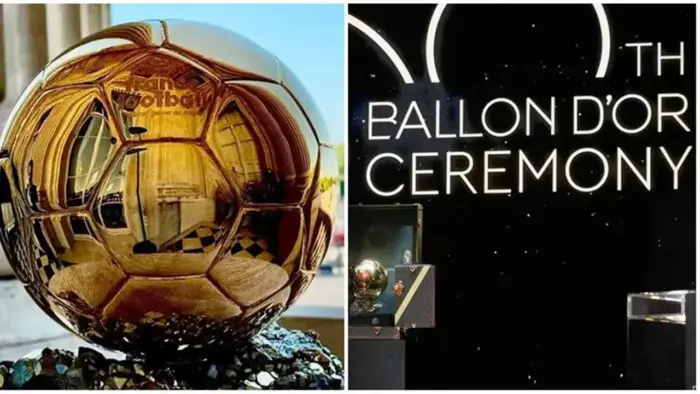For decades, Ballon d’Or has been the most coveted individual prize in football, a symbol of a player’s dominance and a testament to their legacy.
The award also known as the “Golden Ball,” has a rich and storied history, filled with legendary players, controversial decisions, and evolving criteria.
Following the recent edition witnessed by the football world, below are 10 key moments and facts that have defined this iconic award:
1. The award was established in 1956 by the French magazine France Football to honor the best European football player each year. The first recipient was Stanley Matthews of Blackpool FC, England.
2. Initially, the award was only open to European players but from 1995, it was expanded to include any player active in European clubs, regardless of nationality.
3. In 2007, the Ballon d’Or became a global award allowing professional footballers worldwide to qualify, and expanded the voting to include national team coaches and captains before reverting to only journalists voting again in 2016.
READ ALSO: Gusau Hails Lookman, Urges Him To Do More To Win Ballon D’Or
Read Also
4. The award was merged with FIFA’s World Player of the Year from 2010 to 2015, creating the FIFA Ballon d’Or. After the partnership ended in 2016, the Ballon d’Or and FIFA’s separate award system were reinstated.
5. Since 2018, a female Ballon d’Or has been awarded to recognise the best women’s footballer of the season, marking a significant step for women’s football.
6. Notable multiple-time winners include Lionel Messi with a record 8 Ballons d’Or, followed by Cristiano Ronaldo with 5. Johan Cruyff, Michel Platini, and Marco van Basten each won the award three times.
7. The selection criteria have evolved to focus on a player’s performance during a single football season rather than the calendar year, rewarding individual skill, collective success, and fair play.
8. The Ballon d’Or is voted on by about 100 journalists from countries ranked in the FIFA rankings, ensuring a global perspective in the selection process.
9. The award ceremony typically takes place in Paris, and since 2024, UEFA has co-organized the event with France Football, although France Football retains control of the voting and the trophy name.
10. Historically, the Ballon d’Or has not only honored great European players but has also retrospectively recognized non-European legends like Pelé and Diego Maradona as worthy winners under an internationalized reevaluation.





